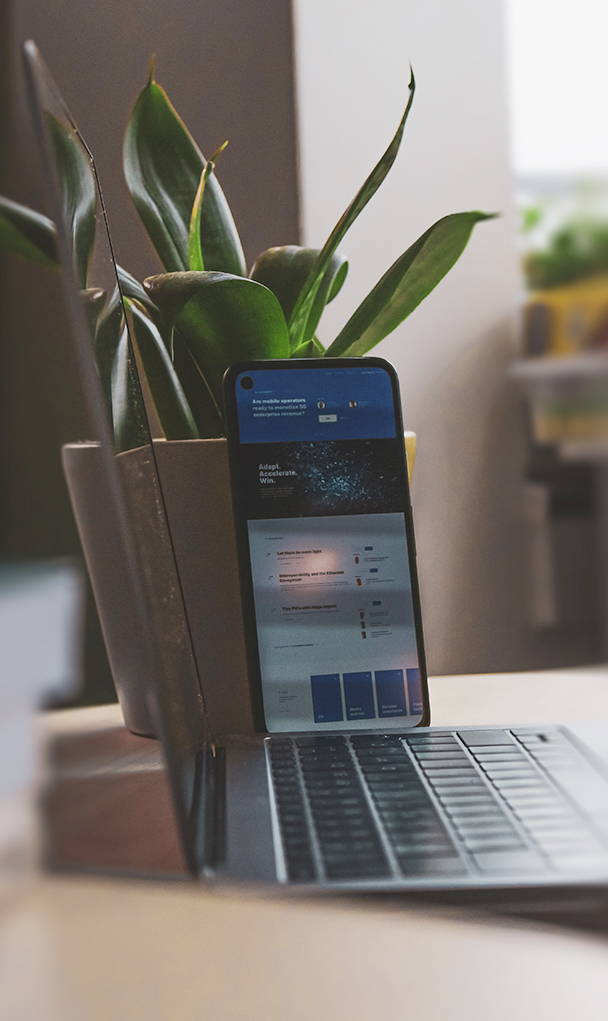
How Green is Your Screen?
The Environmental Cost of the Digital Economy
By Renee Fortune
There is a definite shift in the world. The internet became public domain just under three decades ago. Since then we have been iterating – making subtle shifts in the way we work, the way we interact and the way we transact. With the onset of the Fourth Industrial Revolution and innovations such as social media, augmented reality and the internet of things, we took a leap forward. And then the world faced a pandemic that changed everything, for everyone. And it seems since then, we have taken another giant leap forward. Digitalization is a realty for the world today. As our lives have become increasingly digitized, we’ve enjoyed unprecedented levels of convenience and accessibility. That is indeed something to be embraced and celebrated. But, there’s a but…
We, as digital natives, digital nomads and digitally-conscious beings, need to remember that everything comes at a cost. Building a digital economy is no exception.
Did you know that your smartphone relies on rare-earth metals? A single iPhone, for example, contains eight different rare-earth metals including scandium and yttrium. Did you know that the stark red, blue and green colours you see on your screen are created by a combination of these rare-earth metals? Why is this even significant? Because the mining and processing of these metals has caused irreparable damage to the earth and has contributed to the emission of toxic gases which are released into the atmosphere. It’s something to think about.
Let’s broaden our viewpoint a bit. According to the BBC, the carbon footprint of our digital technology, smartphones, the internet and the systems that support them, account for almost 4% of global greenhouse emissions. To put this into perspective, this percentage is similar to the amount produced by the airline industry. It makes me wonder whether the gains we made in terms of saving on carbon emissions during the COVID-19 travel bans were offset by the exponential boom in digital communications, and its environmental cost.

A study aptly entitled, “The Cloud Begins with Coal,” showed how digital technology like cloud computing and blockchain, which are powered by electricity, can be linked back to coal. And as we know, coal is a non-renewable natural resource. It takes millions of years to form but only a few years to make a significant impact on the environment.
This is just the tip of the iceberg. And it’s a difficult one. We all want to chip in and do our bit for the environment by driving and travelling less, practising conscious consumerism and recycling, but it seems at every turn that we are met by the reality that our capitalistic society is fundamentally reliant on the exploitation of the natural world. It is simply the status quo – for now.
But don’t be discouraged. If there’s anything I would not like this article to do is lead to more despondence and a feeling that nothing we do will ever be enough to save our planet. I don’t believe that’s true. But if you remember one thing from this article, let it be that everything comes at a cost. And we as conscious consumers need to educate ourselves on what these costs are so we can weigh them up and make better decisions.
The tides are turning, and conscious consumers are providing the impetus for that change. We’re seeing amazing developments like recycling start-ups that are growing in leaps and bounds and helping to drive and encourage positive behaviour around reusing and recycling plastic. Technology is being used to innovate and change the way that we treat waste.
It’s certainly not all doom and gloom. Motivating people to change their lifestyles and their daily habits is a challenge but there are millions of conscious consumers around the globe who are up for that challenge. Ultimately, it’s about the awareness that comes from educating yourself – searching high and low for the facts, asking questions and standing for truth and transparency.
I am deeply moved and inspired by the words of “eco-model” and entrepreneur, Summer Rayne Oakes:










